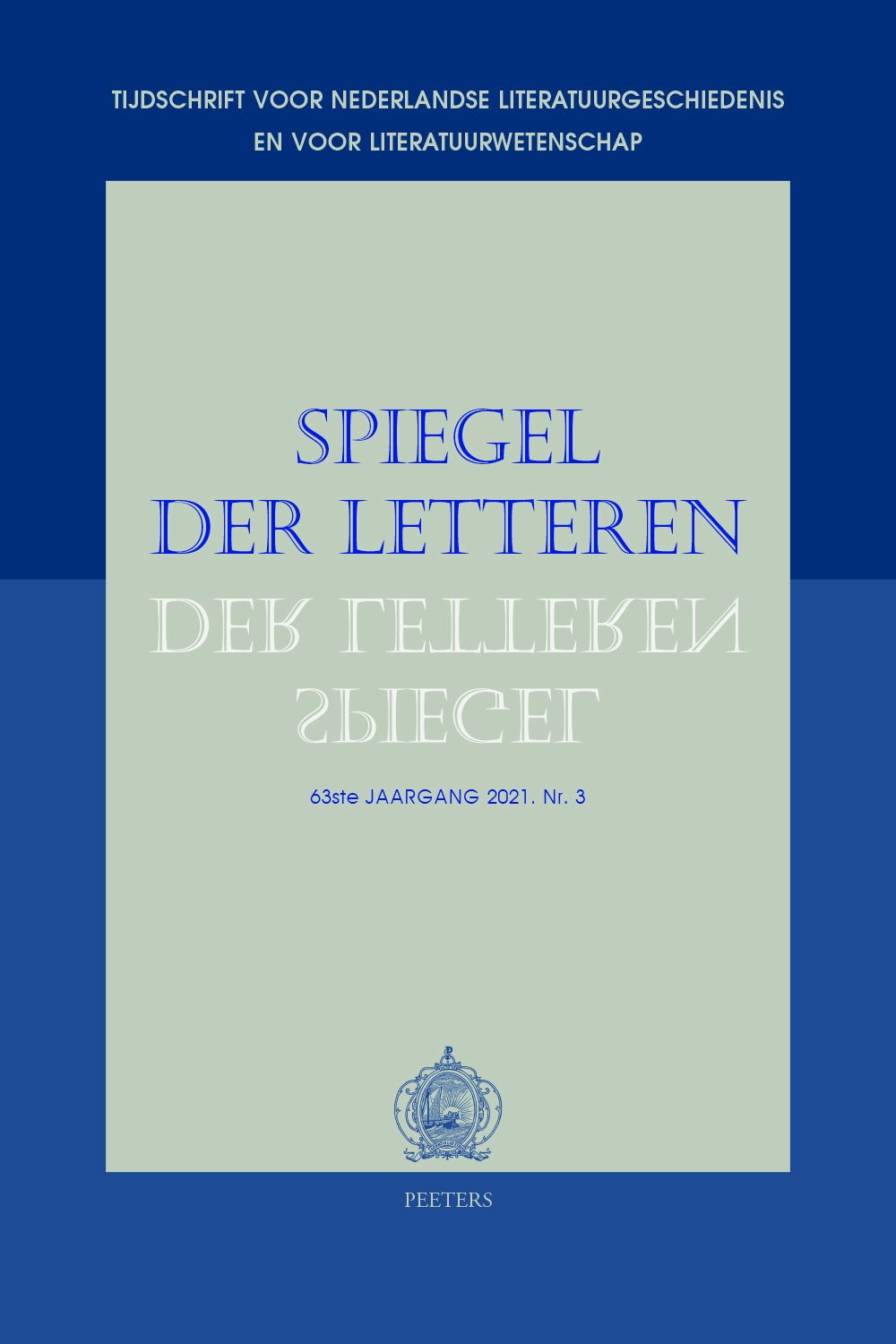next article in this issue  |

Preview first page |
Document Details : Title: Het corporatieve element in de Middelnederlandse letterkunde en de zogenaamde laatmiddeleeuwse burgermoraal Author(s): DUMOLYN, Jan Journal: Spiegel der Letteren Volume: 56 Issue: 2 Date: 2014 Pages: 123-154 DOI: 10.2143/SDL.56.2.3030637 Abstract : The influence of corporatist ideology on Middle Dutch literature between c. 1300 and c. 1600 has not yet received enough scholarly attention. This discourse, characteristic for the social structure of crafts and other guilds, implied a moralist view on labour, the right to a secure livelihood, ideas on brotherly love, harmony and charity and a view on social and political privileges and duties. This paradigmatic chain of signifiers is also strongly present in the literature of this period. The guild context of production, circulation and reception of literary texts has also lacked systematic study. This discourse and this social context are referred to as ‘the corporate element in Middle Dutch literature’. Acknowledging its importance leads to a questioning of Herman Pleij’s influential notion of ‘burgher morality’. |
|


